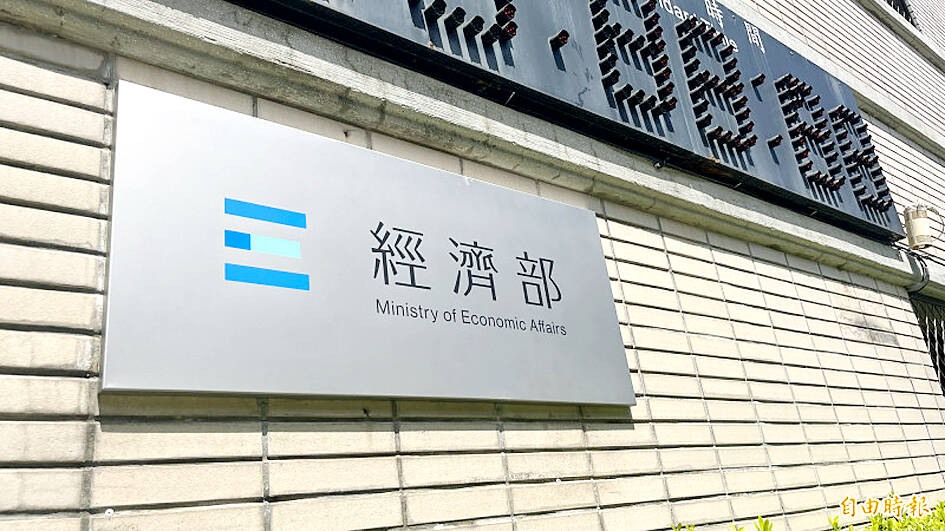Foreign direct investment (FDI) approved by the Department of Investment Review, excluding those from China, increased 88.94 percent year-on-year to US$1.11 billion last month, the Ministry of Economic Affairs said yesterday.
The ministry attributed the increase to Danish wind energy developer Copenhagen Infrastructure Partners K/S (CIP) gaining approval to increase capital in its Fengmiao (渢妙) offshore wind farm project.
FDI measures the investment activities of foreign firms, including the incorporation of a subsidiary or joint venture, a cash injection into a local unit, or mergers or acquisitions of domestic companies.

Photo: Liao Chia-ning, Taipei Times
CIP gained approval to increase the capital of CI Fengmiao Ltd (哥本哈根基礎設施渢妙股份) by NT$22.08 billion (US$675.3 million) and reinvested in Fengmiao Wind Power Co (渢妙離岸風力發電股份) for operations related to the Phase 3-1 Fengmiao Project in Taichung, the ministry said in a report.
The Fengmiao offshore wind farm is about 36km off Taichung. It has been awarded a 500 megawatt grid capacity by the ministry with expected completion by the end of 2027.
Last month, approved FDI from New Southbound Policy countries decreased 11.01 percent annually to US$11.01 million, with Singapore, Australia and Myanmar being the main sources of investment, the ministry said.
The government initiated the New Southbound Policy in 2016. The policy aims to enhance Taiwan’s trade and exchanges with 18 countries in South and Southeast Asia, including Australia and New Zealand.
Over the same period, approved inbound investment from China jumped 3,050.06 percent to US$96.05 million as Hong Kong-based Garuda International Ltd (鵬鼎國際) was given approval to raise investment in its Taiwanese unit, Garuda Technology Co (鵬鼎科技), by NT$3 billion, it said.
Garuda Technology’s business is focused on the production of flexible printed circuit boards and the provision of surface-mount technology services, it added.
Meanwhile, approved outbound investment from Taiwanese firms, excluding those to China, fell 5.6 percent year-on-year to US$422.31 million last month, with those to New Southbound Policy countries decreasing 27.91 percent to NT$223.14 million, with Malaysia, Vietnam and Thailand the main destinations, while those to China dropped 4.39 percent to US$91.41 million, it said.

CAUTIOUS RECOVERY: While the manufacturing sector returned to growth amid the US-China trade truce, firms remain wary as uncertainty clouds the outlook, the CIER said The local manufacturing sector returned to expansion last month, as the official purchasing managers’ index (PMI) rose 2.1 points to 51.0, driven by a temporary easing in US-China trade tensions, the Chung-Hua Institution for Economic Research (CIER, 中華經濟研究院) said yesterday. The PMI gauges the health of the manufacturing industry, with readings above 50 indicating expansion and those below 50 signaling contraction. “Firms are not as pessimistic as they were in April, but they remain far from optimistic,” CIER president Lien Hsien-ming (連賢明) said at a news conference. The full impact of US tariff decisions is unlikely to become clear until later this month

With an approval rating of just two percent, Peruvian President Dina Boluarte might be the world’s most unpopular leader, according to pollsters. Protests greeted her rise to power 29 months ago, and have marked her entire term — joined by assorted scandals, investigations, controversies and a surge in gang violence. The 63-year-old is the target of a dozen probes, including for her alleged failure to declare gifts of luxury jewels and watches, a scandal inevitably dubbed “Rolexgate.” She is also under the microscope for a two-week undeclared absence for nose surgery — which she insists was medical, not cosmetic — and is

GROWING CONCERN: Some senior Trump administration officials opposed the UAE expansion over fears that another TSMC project could jeopardize its US investment Taiwan Semiconductor Manufacturing Co (TSMC, 台積電) is evaluating building an advanced production facility in the United Arab Emirates (UAE) and has discussed the possibility with officials in US President Donald Trump’s administration, people familiar with the matter said, in a potentially major bet on the Middle East that would only come to fruition with Washington’s approval. The company has had multiple meetings in the past few months with US Special Envoy to the Middle East Steve Witkoff and officials from MGX, an influential investment vehicle overseen by the UAE president’s brother, the people said. The conversations are a continuation of talks that

Alchip Technologies Ltd (世芯), an application-specific integrated circuit (ASIC) designer specializing in artificial-intelligence (AI) chips, yesterday said that small-volume production of 3-nanometer (nm) chips for a key customer is on track to start by the end of this year, dismissing speculation about delays in producing advanced chips. As Alchip is transitioning from 7-nanometer and 5-nanometer process technology to 3 nanometers, investors and shareholders have been closely monitoring whether the company is navigating through such transition smoothly. “We are proceeding well in [building] this generation [of chips]. It appears to me that no revision will be required. We have achieved success in designing